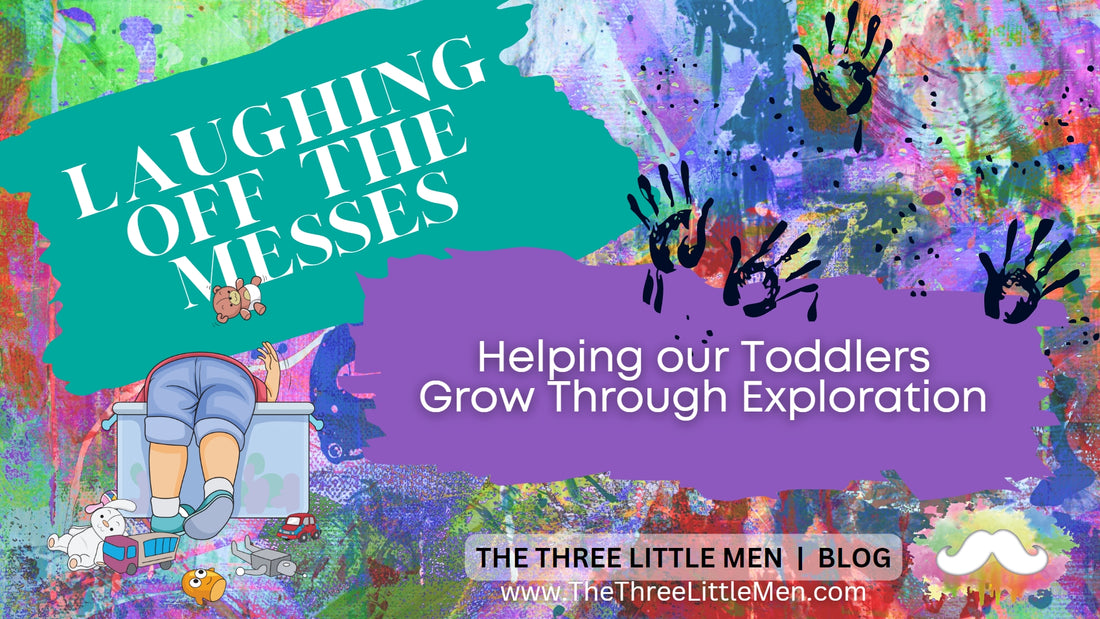Laughter is often said to be the best medicine, and it can be especially true when it comes to parenting young children. Toddlers are notorious for making messes, whether it's spilling their juice, scattering toys across the room, or smearing food all over their face and clothes. Today for us it was a can of pringles being shaken and scattered all over the back seat of our car by our 3 year old. But while it can be tempting to get frustrated or angry when your child makes a mess, taking a lighthearted approach can actually be more beneficial for both you and your child.

Laughing off messes is important because it helps create a positive environment in which children can learn and grow. When you approach messes with a sense of humor, it sends a message to your child that mistakes are a natural part of learning and that it's okay to make them. This can be especially important for young children who are still figuring out the world around them. By showing them that you don't take their messes too seriously, you help them feel more comfortable and confident in their explorations.
Additionally, laughing off messes can be a great way to bond with your child. Parenting can be stressful and challenging, but finding moments of joy and humor can help lighten the mood and bring you closer together. When you and your child can laugh together over a spilled cup of milk or a paint-splattered shirt, it creates a shared experience that you can both look back on with fondness.

Of course, it's important to remember that laughing off messes doesn't mean ignoring them completely. Messes still need to be cleaned up, and it's important to teach your child how to take responsibility for their actions. But instead of getting angry or frustrated, try to approach the situation with a sense of humor and turn it into a teaching moment for both you and your child.
For example, if your child spills their drink, instead of scolding them, you could say something like, "Uh-oh, looks like we need to work on our pouring skills!" This acknowledges the mistake while also reframing it as an opportunity to learn and improve. Similarly, if your child makes a mess while painting, you could say, "Wow, you're really exploring with those colors! Let's clean up together so we can keep creating."
By approaching messes in this way, you're not only teaching your child how to take responsibility for their actions, but you're also modeling a positive and constructive approach to mistakes. This can be an invaluable lesson for your child to carry with them throughout their life.
Teaching our children is one of the most important jobs we have as parents. When it comes to teaching them how to take responsibility for their actions, learning from mistakes is an invaluable lesson. By approaching messes in a positive and constructive way, parents can help their children learn how to take ownership of their mistakes and gain useful life lessons from them. Not only are you teaching your child an important lesson, but you’re also modeling a healthy approach to mistakes that they can use throughout their lives.

Of course, there will be times when it's harder to laugh off messes. Maybe your child has just spilled something on your new carpet, or maybe you're already feeling stressed and overwhelmed. In these situations, it's okay to take a step back and take a deep breath before responding. It's important to acknowledge your own emotions and take care of yourself, even as you work to create a positive environment for your child.
In conclusion, laughing off messes can be an important tool for parents of young children. By approaching messes with a sense of humor and turning them into teaching moments, you can create a positive and constructive environment in which your child can learn and grow. Of course, there will be times when it's easier said than done, but even in those moments, taking a lighthearted approach can help diffuse the tension and bring a little bit of joy to your day. So next time your child makes a mess, try to see the humor in the situation and turn it into a moment of connection and growth.





